Here are pictures of my roof and the solar panels.
Golden_HVAC wrote:
rickthescot wrote:
Sounds like a great idea. I guess asking for pictures again is not going to persuade you though. We are visual creatures and I don't think 1000 words will accomplish what one image will. You can do it, just one pic.
More pictures that I took a few days ago to post pictures of my solar panels, and their mounts. Some pictures are really close up pictures of the solar panel mounts, and give a clear picture of howrough the surface is.
Golden_HVAC wrote:
Hi,
This is my front pair of panels. 120 watt mounted on a curved roof, 102" wide.
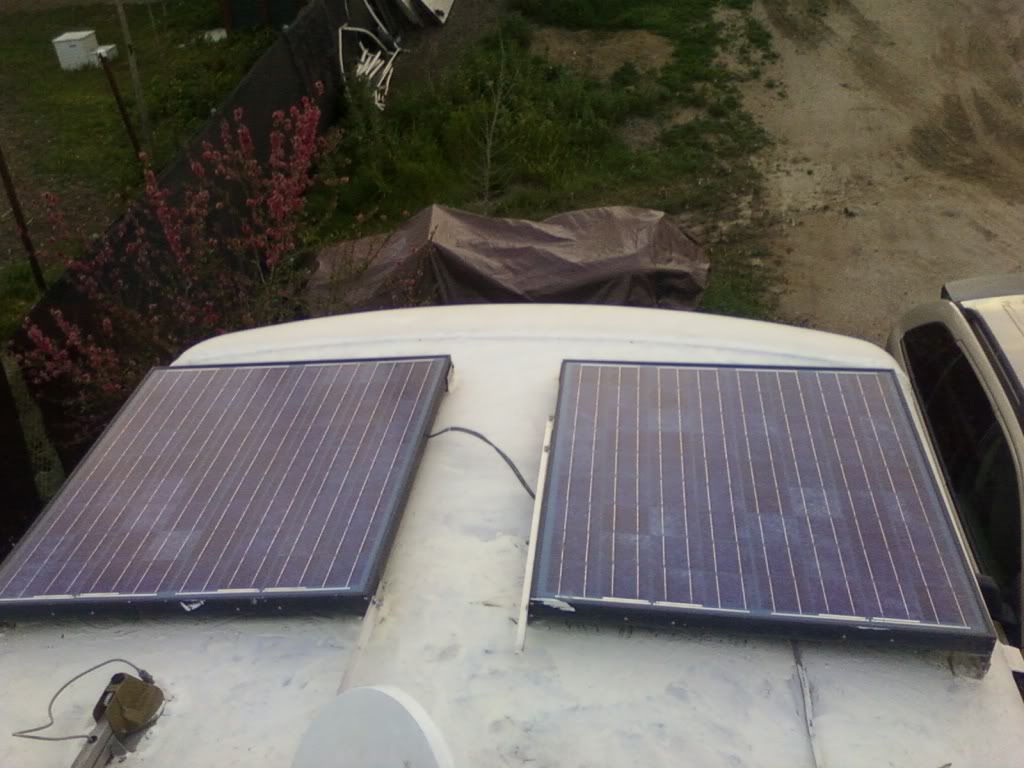
This is the mount it is held on with three rivets into the frame, and then the bottom half is 6" long aluminum, with nutsert in the upper piece, bolt you can not see from the outside edge pointing inward.
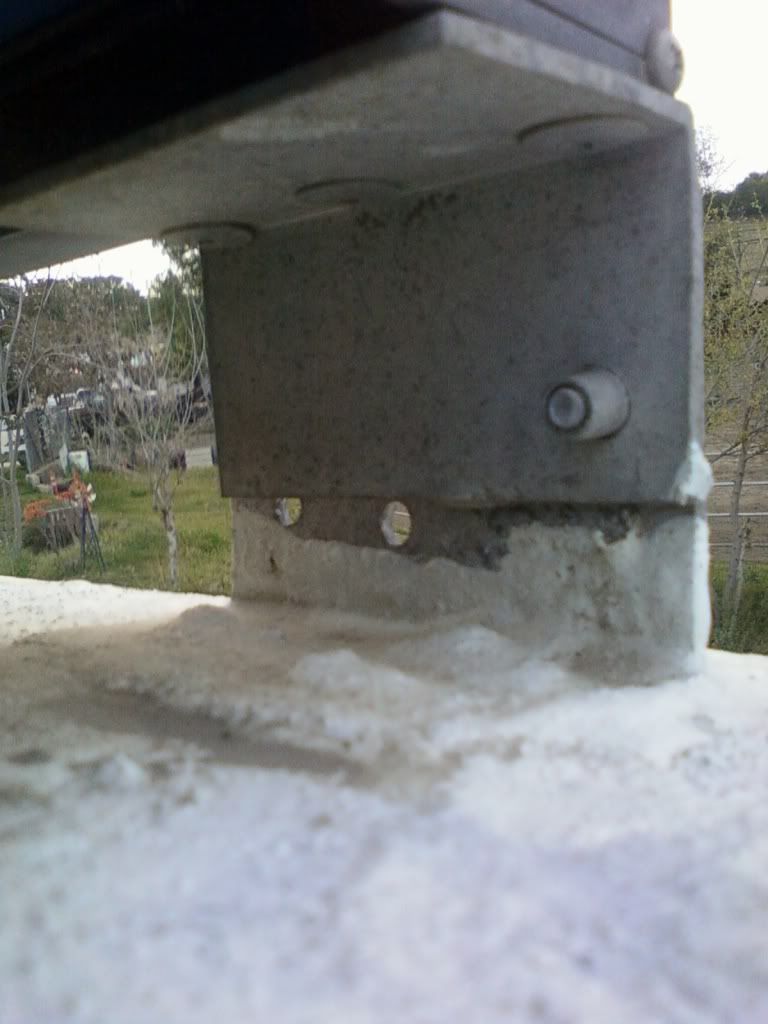
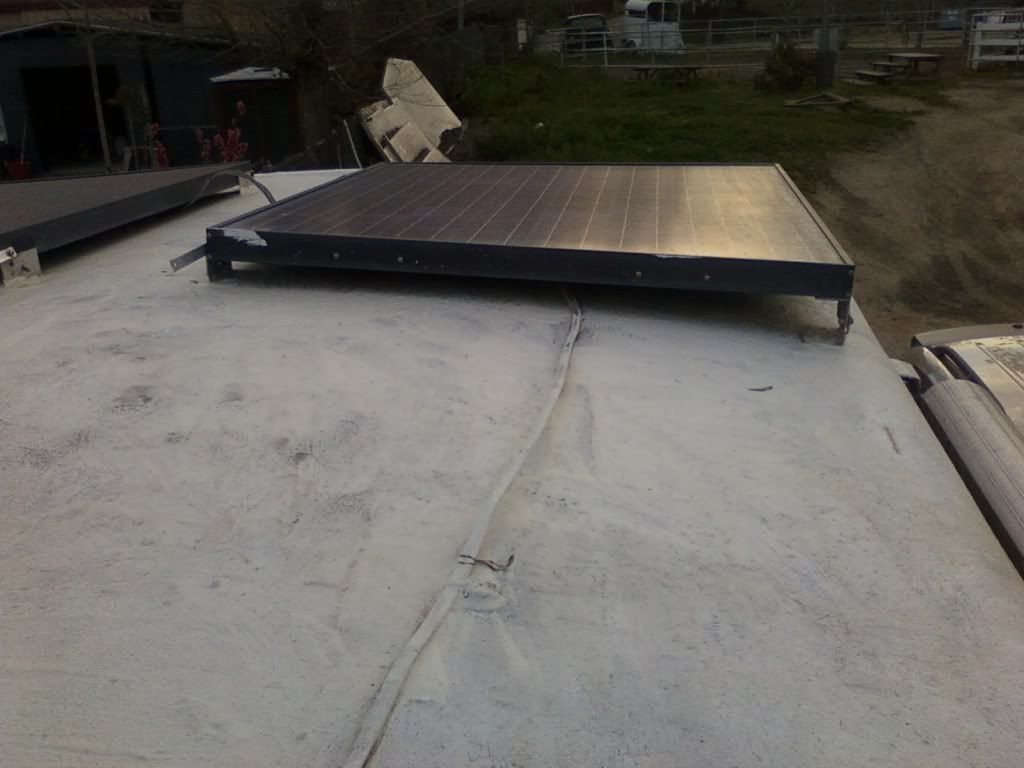
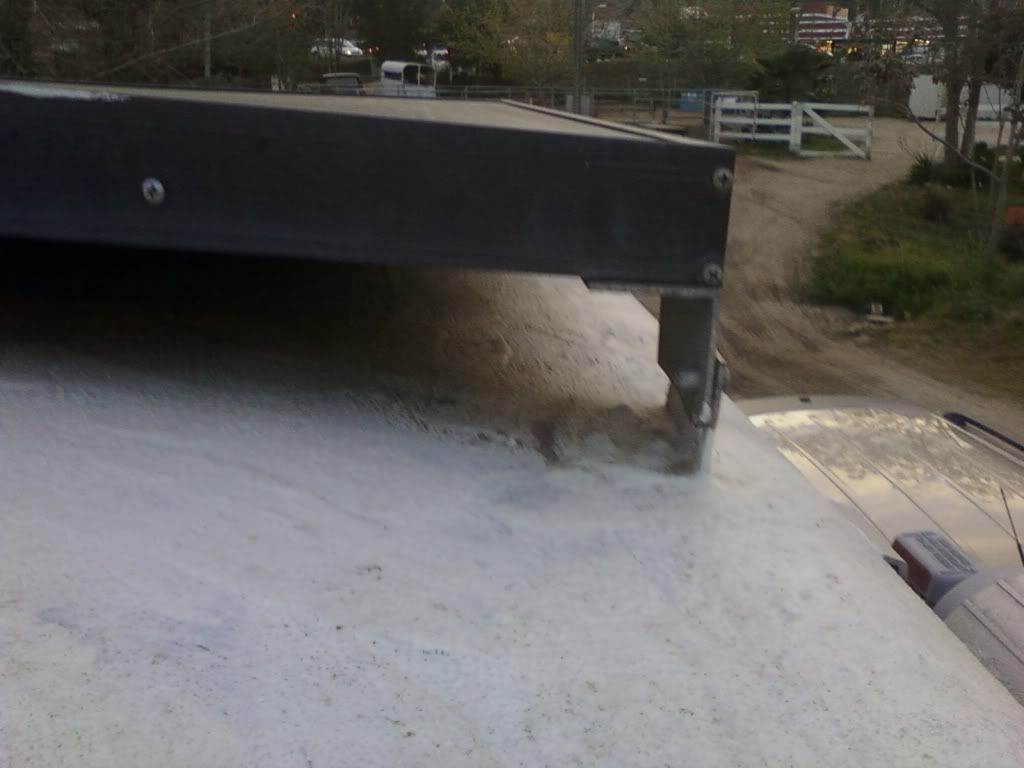
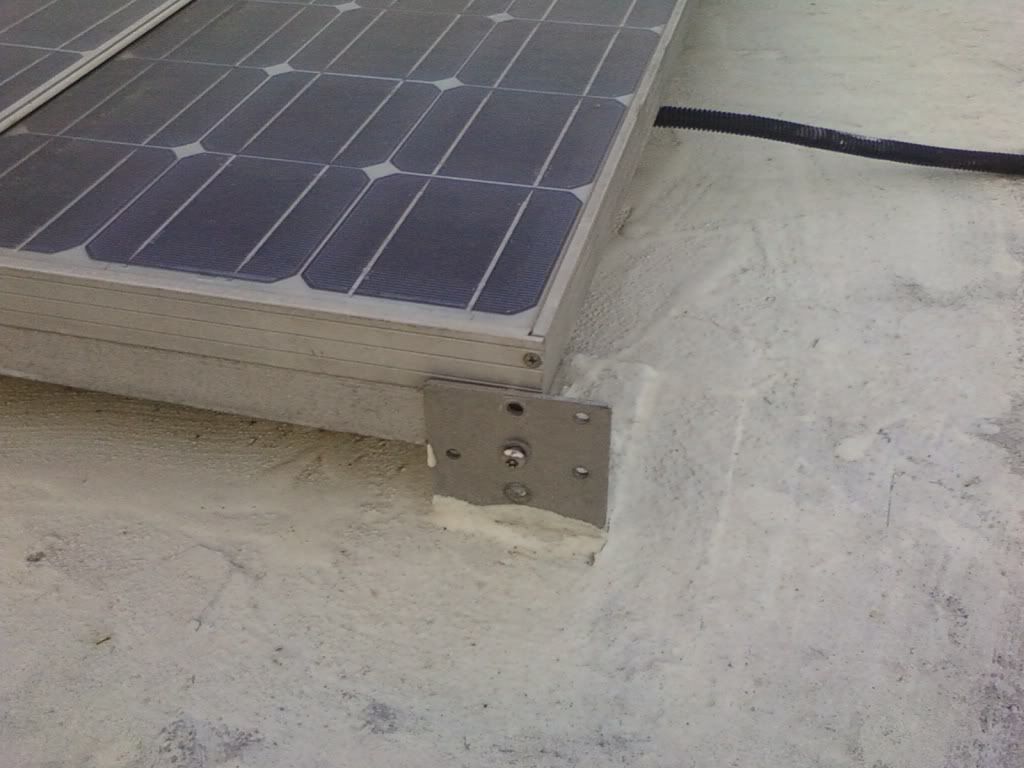
This picture shows the bigfoot panel mount sold by RvSolarElectric for $35 a set back in 1994. I wonder what they cost today?
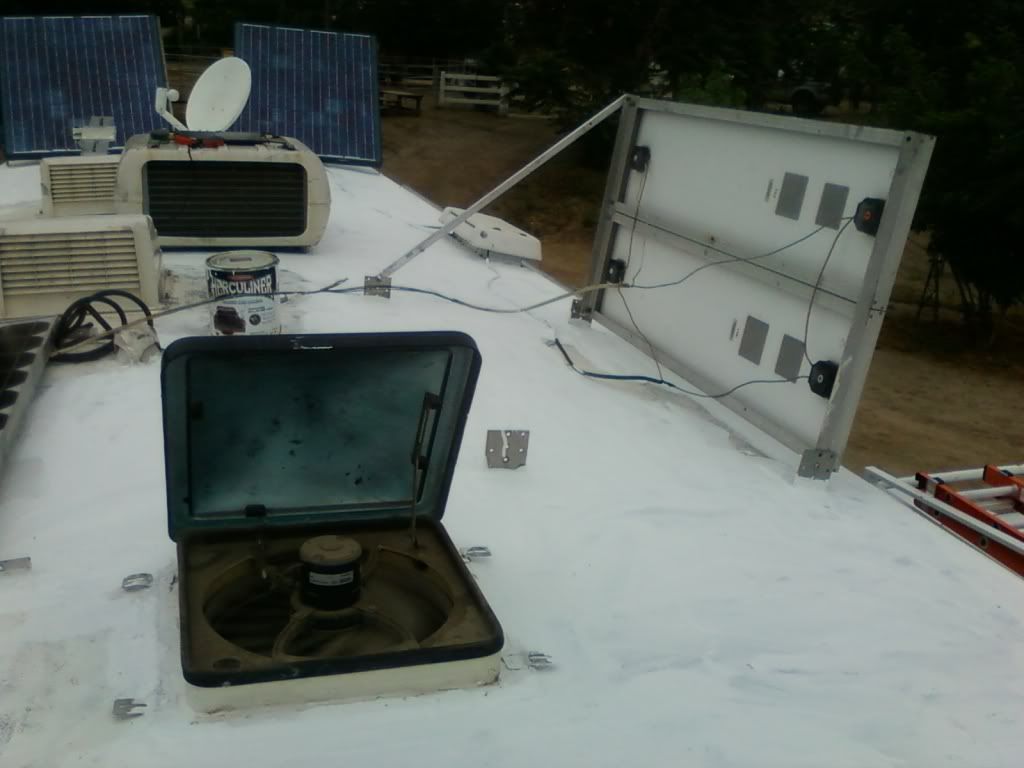
This picture shows the panels tilted while I was working on the roof.
Fred.
Normally you want to tilt the panels to about 45 degrees, or maybe a little less to catch less wind. If you are camping in a windy area, or traveling the next day (that will charge the battery by running the engine) do not bother to tilt the panels





